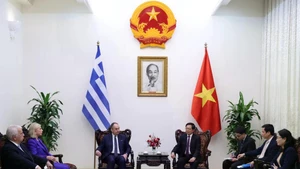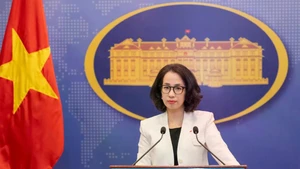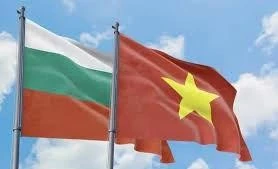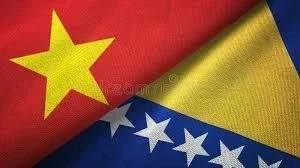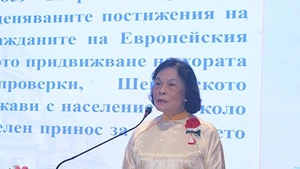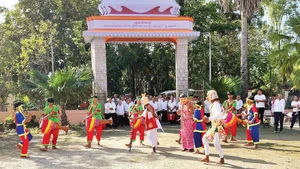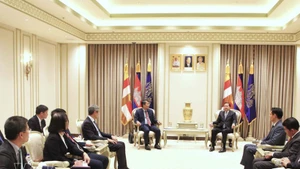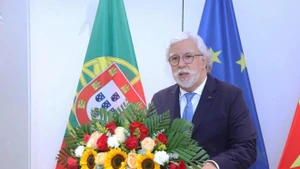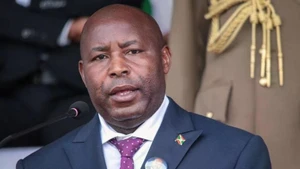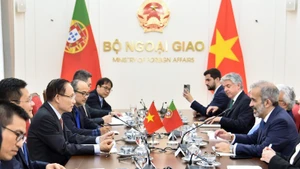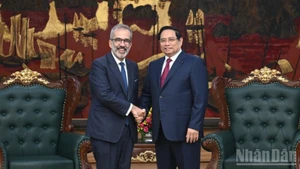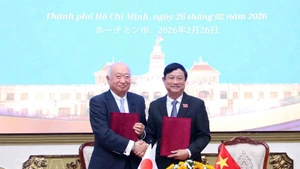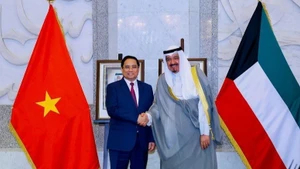The meeting will run until September 2.
The session comprises two main parts: one co-chaired by the Vietnamese Minister of Construction and the Cuban Minister of Foreign Trade and Foreign Investment; and another led by Vietnamese Deputy Minister of Construction Nguyen Tuong Van and Cuban Deputy Minister of Foreign Trade and Foreign Investment Déborah Rivas Saavedra.
The agenda focuses on a comprehensive review of cooperation outcomes in various fields under the agreements of the 41st session, while setting out cooperation priorities for the 2025–2026 period. The session also aims to accelerate key programmes, projects, and activities, thereby strengthening the traditional friendship, special solidarity, and comprehensive cooperation between Viet Nam and Cuba.
At this session, both sides will agree on directions and specific measures to further boost economic, trade and investment ties, particularly in priority sectors such as agriculture and food security, biotechnology and healthcare, and energy.
Regarding food security, the two countries will work together on sustainable rice production, technology transfer, and scaling up new cooperation models to help ensure Cuba’s food security. Cooperation will also be stepped up in biotechnology and healthcare, including the promotion of joint ventures in biotechnology for public health and for agriculture. At the same time, the two sides will implement a solar power project to help Cuba address its current electricity shortages.
Speaking at the meeting, Deputy Minister of Construction Nguyen Tuong Van called on both governments — especially the Cuban Government — to pay close attention and introduce mechanisms to tackle difficulties, thereby creating an open and favourable investment environment for Vietnamese enterprises. He stressed that this would be a key factor in unlocking cooperation potential, enhancing the effectiveness of existing projects and attracting more new Vietnamese investments in Cuba, thereby making tangible contributions to Cuba’s socio-economic development.
He also urged stronger, comprehensive cooperation in agriculture, building on the results of Viet Nam’s technical assistance projects for Cuba and expanding them on a larger scale to make a real and lasting difference to Cuba’s food security. At the same time, breakthroughs in healthcare and biotechnology collaboration are needed. Both sides should accelerate procedures so that joint ventures can soon become operational, enabling self-sufficiency in supplies for the Vietnamese market and exports to the wider region.
At the meeting, Deputy Minister Déborah Rivas Saavedra expressed gratitude for the support of the Communist Party, Government, and people of Viet Nam, particularly for the provision of 11,500 tonnes of rice and the upcoming solar power project to be implemented by Viettel Group. She emphasised that these are vital projects with direct impacts on the lives of the Cuban people.
She further noted that from 2025, Viet Nam and Cuba have become Partner Countries in the BRICS grouping of emerging economies. This cooperation mechanism, she said, opens major opportunities for the two sides to explore and develop joint projects for the mutual benefit of both nations and of the Global South.
“Viet Nam and Cuba will study these new opportunities and identify solutions for cooperation. Cuba is ready to consider what can be done to ensure that new Vietnamese investment projects in Cuba are implemented in an effective and sustainable manner, bringing tangible benefits to both sides,” she stressed.

The 42nd Session reaffirmed the commitment of both governments to creating the best possible conditions for the business communities of the two countries to cooperate, invest, and conduct business. Key cooperation documents signed at the meeting included: the minutes of the 42nd Session of the Viet Nam–Cuba Intergovernmental Committee; the intergovernmental agreement on promoting rice production for 2025–2027; a memorandum of understanding on cooperation in archives and records management; and a memorandum on establishing a biotechnology joint venture company between Viet Nam’s Hoa Sen Investment Group Co., Ltd. and Cuba’s Labiofarm Group. These agreements provide a solid legal basis for effective implementation of the commitments reached.
On September 1, the Vietnamese Minister of Construction and the Cuban Minister of Foreign Trade and Foreign Investment are expected to sign the minutes of the 42nd Session on behalf of the two sides.

